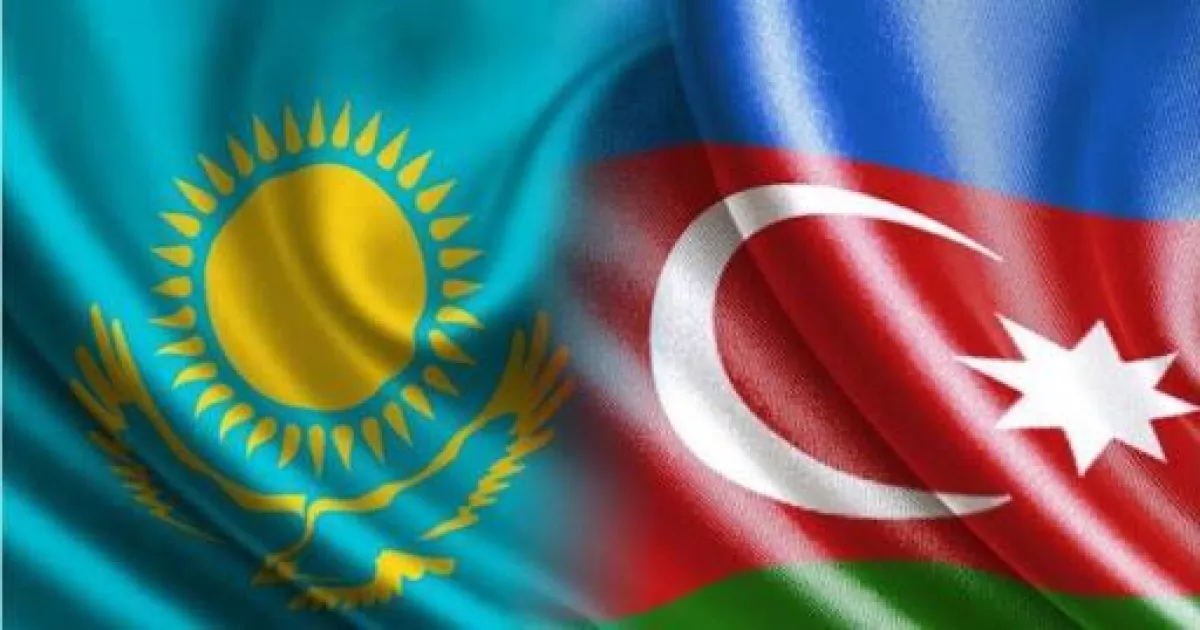Trans-Caspian cable for Turkic integration Optics across the sea
The idea of connecting the western and eastern shores of the Caspian Sea with an optical internet cable, first proposed a quarter of a century ago, is now taking concrete shape. In March of this year, an agreement was signed in Baku between Azerbaijan and Kazakhstan to begin work on laying the underwater TransCaspian Fibre Optic (TCFO) line. Recently, during an informal summit of the heads of state of the Organisation of Turkic States (OTS) in Budapest, Kazakh President Kassym-Jomart Tokayev spoke about the strategic significance of the fibre-optic communication line for creating a new digital corridor across the Eurasian continent.
The concept of connecting the western and eastern shores of the Caspian Sea with an optical internet cable was formulated back in the late 20th century. However, it was not realised either within the framework of the Trans-Asia-Europe (TAE) project launched in 1999 under the initiative of the EU, or within the 2008 initiative developed by Azerbaijan — the Trans-Eurasian Super Information Highway (TASIM) project.
Over the past 15 years, Azerbaijan has managed to significantly expand the land segments of backbone internet cables in the northern and western directions, while prolonged negotiations were conducted with partners in Central Asia regarding the laying of a trans-Caspian optical cable.
As a result, AzerTelecom and Kazakhtelecom agreed to establish a joint working group and consortium, followed by the ratification of a bilateral intergovernmental agreement. In November 2019, a ceremonial event was held to mark the official start of the project. Unfortunately, the coronavirus pandemic, the collapse of oil prices, and a series of economic crises amid acute geopolitical conflicts in the post-Soviet region caused prolonged delays in the organisational and financial work on the TCFO project.
A breakthrough in the implementation of the trans-Caspian optical project came with the signing in March of this year in Baku of the final documents by the chairmen of AzerTelecom and Kazakhtelecom, Emil Masimov and Bagdat Musin, which approved the agreement to begin laying the fibre-optic communication line along the bottom of the Caspian Sea. By that time, the final high-level design (HLD) of the project had been adopted, the final studies for the project works completed, and a detailed roadmap approved.

“This year, Kazakhstan and Azerbaijan launched an important joint project to lay a fibre-optic cable along the bottom of the Caspian Sea. This project will significantly expand digital connectivity between our states and serve to strengthen regional integration,” said Kazakh President Kassym-Jomart Tokayev at an informal meeting of the Council of Heads of State of the Organisation of Turkic States (OTS) in Budapest.
According to Tokayev, such initiatives open up opportunities to create a new digital corridor across the Eurasian continent, ensuring secure and sustainable data exchange. This is particularly important for the Organisation of Turkic States (OTS) member countries, which cooperate in trade and logistics and are implementing a number of projects in the digitalisation of transportation.
It is worth recalling that in last year’s address to the people of Kazakhstan, Kassym-Jomart Tokayev also emphasised the importance of accelerating work on laying the fibre-optic communication line: “This is extremely important for our country in terms of creating modern digital infrastructure connected with international corridors and cross-border data flows. We must also continue the active development of telecommunications networks, data centres, and implement global cybersecurity standards.”
Overall, the TCFO project, which holds strategic significance for the entire Caspian region, involves the construction of a 380 km underwater optical line connecting Sumgait in Azerbaijan and Aktau in Kazakhstan. The new optical line will provide high-speed internet connectivity at around 400 terabits per second: high data transmission speed with minimal latency is one of the commercial advantages of this efficient and short route.
The project will be implemented in several stages, including the assessment of coastal areas and the seabed, design, delivery of a high-quality and environmentally resilient cable, as well as its transportation and installation.
In 2023, the telecommunications operators AzerTelecom and Kazakhtelecom signed an agreement to establish a joint venture for the construction and operation of the Trans-Caspian fibre-optic line, with equal shareholding by both parties in the joint venture Caspinet B.V. The investment volume exceeds $50 million, and according to the latest agreements, the project operators plan to complete the construction work by the end of 2026.

Thus, the construction of the Trans-Caspian fibre-optic line is recognised as a key component of the international megaproject Digital Silk Way, which aims to create a digital telecommunications corridor. By connecting the two shores of the Caspian Sea, the optical line — passing through the territories of Azerbaijan, Georgia, Türkiye, as well as Kazakhstan and Turkmenistan — will unify the digital network infrastructure of the vast Turkic states region. Moreover, the fibre-optic line will ensure stable transit of digital traffic from China and other Asian countries towards internet hubs in EU states.
The obvious beneficiaries of this project are Azerbaijan and Kazakhstan, as enhancing network capacity and increasing cross-border transit data flows will enable the Caspian neighbours to accelerate the development of digital infrastructure for data storage and processing along the entire IP corridor.
This will also accelerate the expansion of new telecommunications networks within each country, with plans to build new powerful data centres designed to handle international orders and implement global cybersecurity standards. Finally, the project will help improve the skills of domestic IT specialists involved in servicing the expanded digital space.
In particular, Azerbaijan envisions becoming the region’s digital hub by hosting large cache servers in its data centres to store and deliver content to neighbouring countries across the vast Eurasian region — Central Asia, Georgia, Iran, Iraq, Afghanistan, and potentially the Middle East in the future.
Over time, participation in servicing transit IP traffic and providing international-level data storage services promises significant financial returns for the country.








